Linking learning in Japan to recovery in homeland: Ukrainians' hopes supported by JICA
2025.08.05
The Japan International Cooperation Agency (JICA) offers the "Project for Human Resource Development Scholarship" (JDS), which brings young government officials from developing countries to Japan. The aim is to nurture these individuals into leaders who will contribute to their home governments and serve as bridges between their countries and Japan after returning home. Under this program, two Ukrainian government officials have been studying in Tokyo since 2024. While saddened by the ongoing conflict in their homeland, they are focused on expanding their knowledge and networks to aid in their country's recovery. The two officials expressed their determination, stating they want to share their experience with their colleagues upon returning home and "give a decent future" to their children.
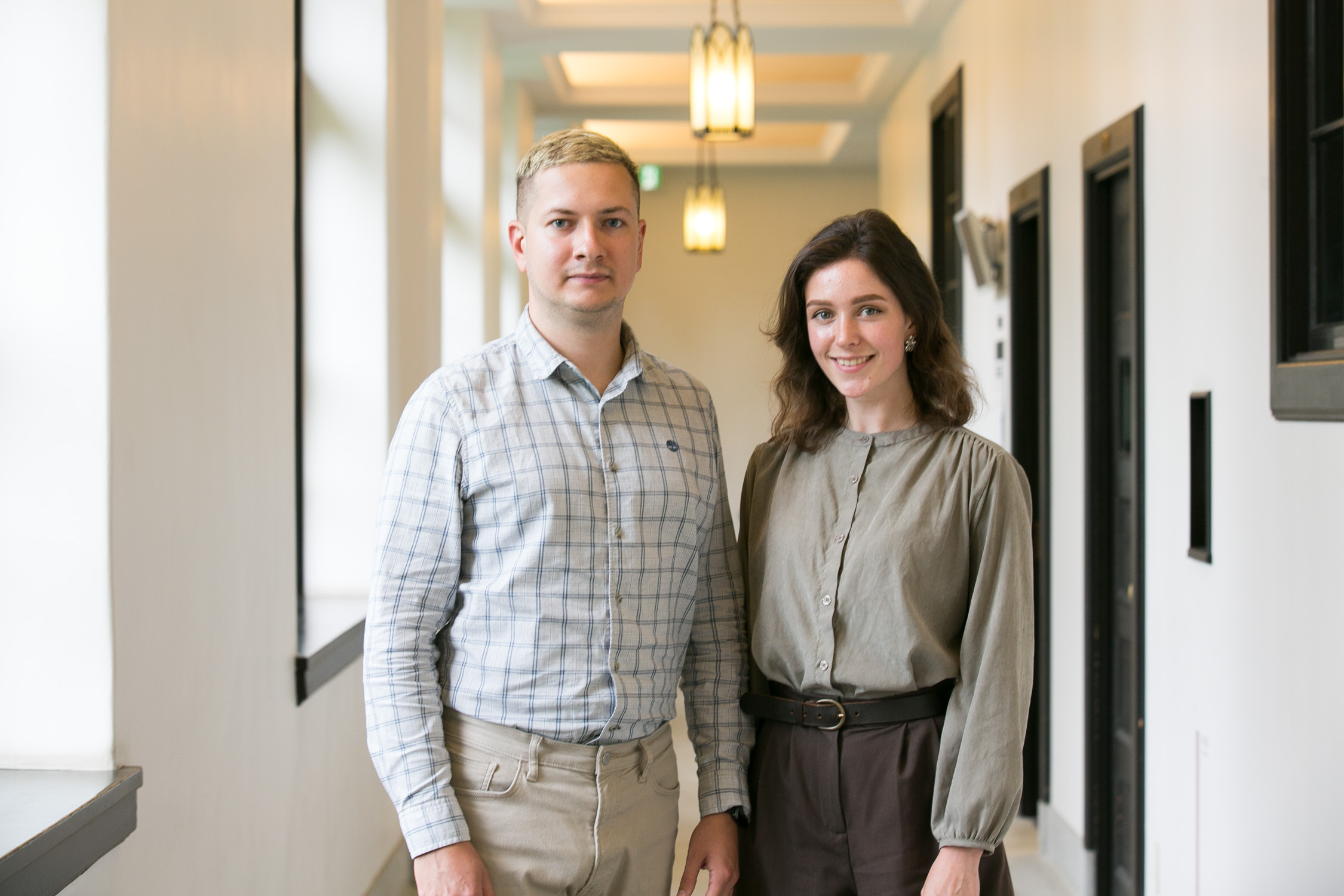
Vladyslav Horpynenko, left, and Yana Horpynenko
At Rikkyo University's Ikebukuro campus in Tokyo, adorned with fresh greenery, Yana Horpynenko and Vladyslav Horpynenko engage in lively discussions with international students after their lectures. Both are young government officials in their 20s, working in the international division of the Ministry of Agrarian Policy and Food of Ukraine. They are pursuing Master of Social Development and Administration degrees in Rikkyo University's Graduate School of Social Design Studies.
Ukrainian civil servants are required to participate in some form of educational program annually to earn credits, and having had prior experience in Japan, the two became aware of the JDS and decided to apply.
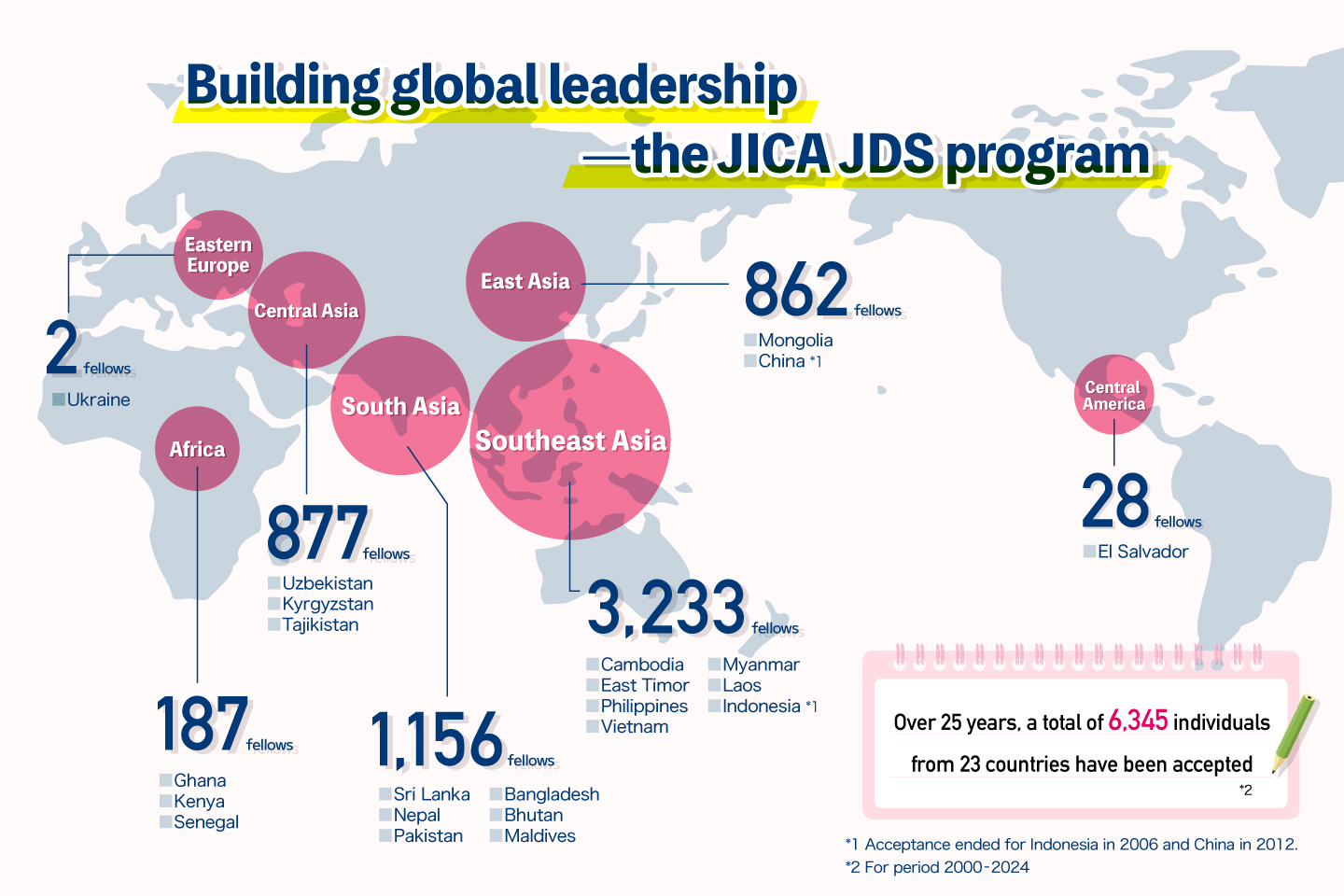
The JDS was established in fiscal 1999 as the "Grant Aid for Scholarship Program" and has now reached its 25th year since welcoming the first JDS fellows. To date, 6,345 government officials from 23 countries have participated in the program. After returning to their home countries, they take on responsible roles at the cores of their governments, strengthening relations with Japan and leveraging the networks they have built with people from Japan and other countries during their studies to thrive globally.
Vladyslav Horpynenko (hereafter referred to as Vladyslav) says he was motivated to go on the program to equip himself with knowledge to help his country amid the various challenges it faces. "If I want real changes in Ukraine, I should get knowledge and understanding how I can make these changes and how I can make Ukraine better for the future," he said.
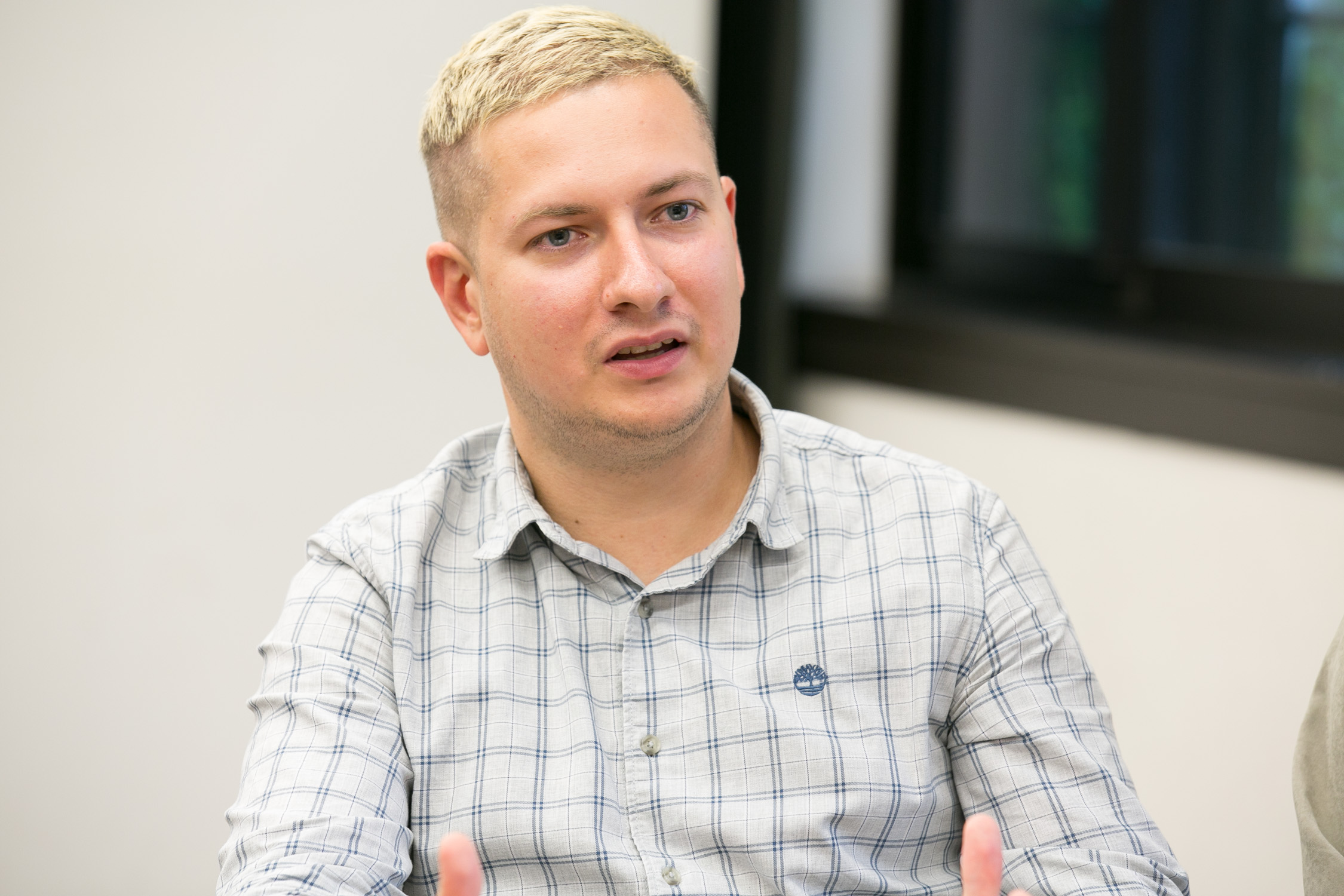
Vladyslav Horpynenko
Meanwhile, Yana Horpynenko (hereafter referred to as Yana), noted, "Most of my colleagues studied in Ukraine, and we usually have the same vision of education, how it works, the same vision of how to solve some problems or how to deal with some issues." She felt the program was "a huge opportunity to study something new," getting experience from foreign colleagues who could share visions while thinking about "how to look at the world, all from a different point of view."
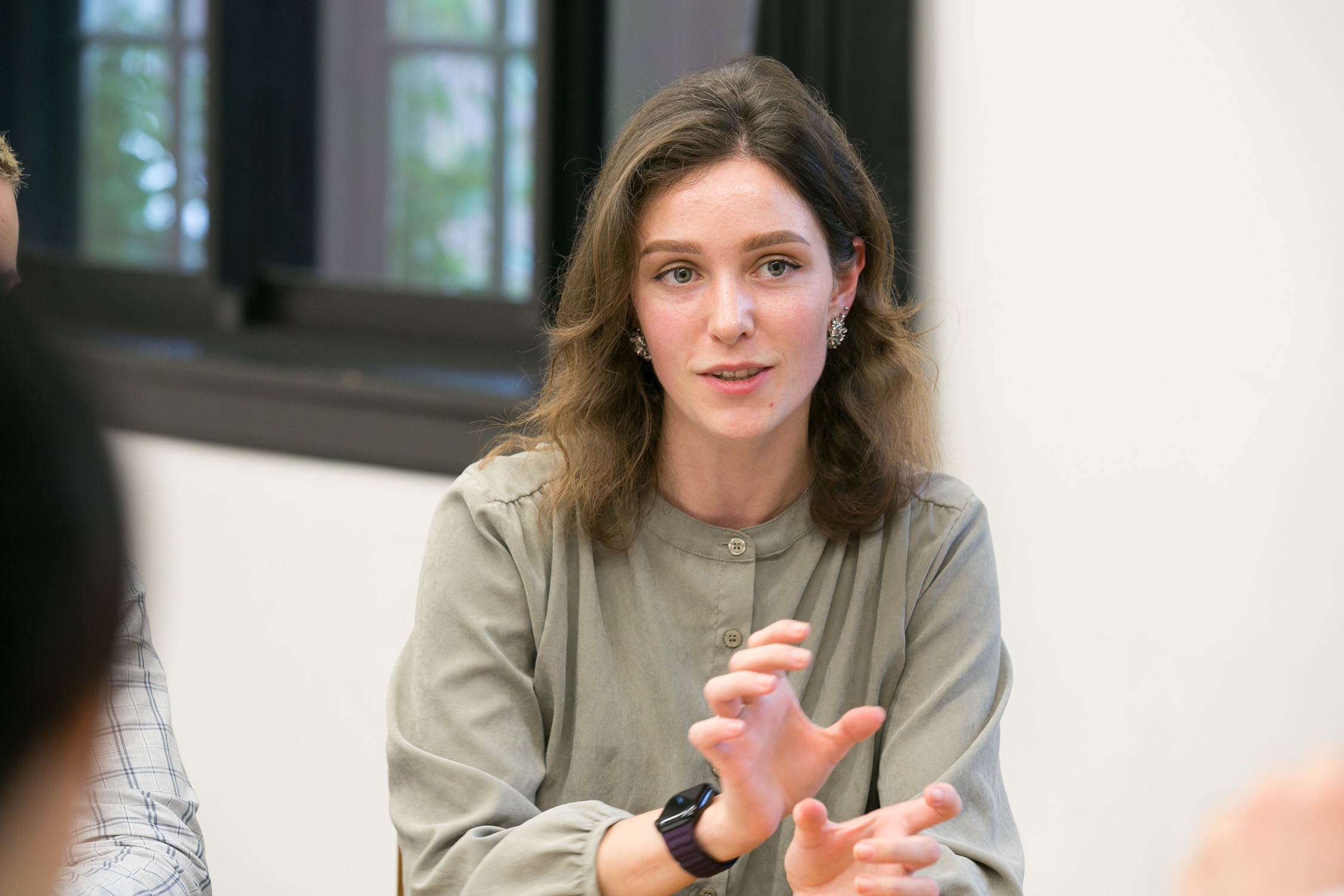
Yana Horpynenko
Yana's smartphone receives hundreds of Ukraine-related news alerts each day. Every time she reads about new attacks or stalled peace negotiations, she experiences a sense of conflict about studying abroad while her homeland faces such challenges.
Vladyslav, originally from Zaporizhzhia, was working at a livestock-related company. In 2022, as nearby homes were being destroyed one after another by Russian missiles, he received a job offer from the Ministry of Agrarian Policy and Food. With just two suits, he decided to start "from zero" in the capital, Kyiv.
Vladyslav said his father became a soldier in the Ukrainian army. His mother, who is a teacher, has stayed in Zaporizhzhia, thinking it's her duty to keep teaching children. He says that even when air raid alarms sound "my family don't go to the air raid shelter because it's impossible to get there in time. There can be 10 or 15 missile attacks per day, so it's impossible. It's like a lottery."
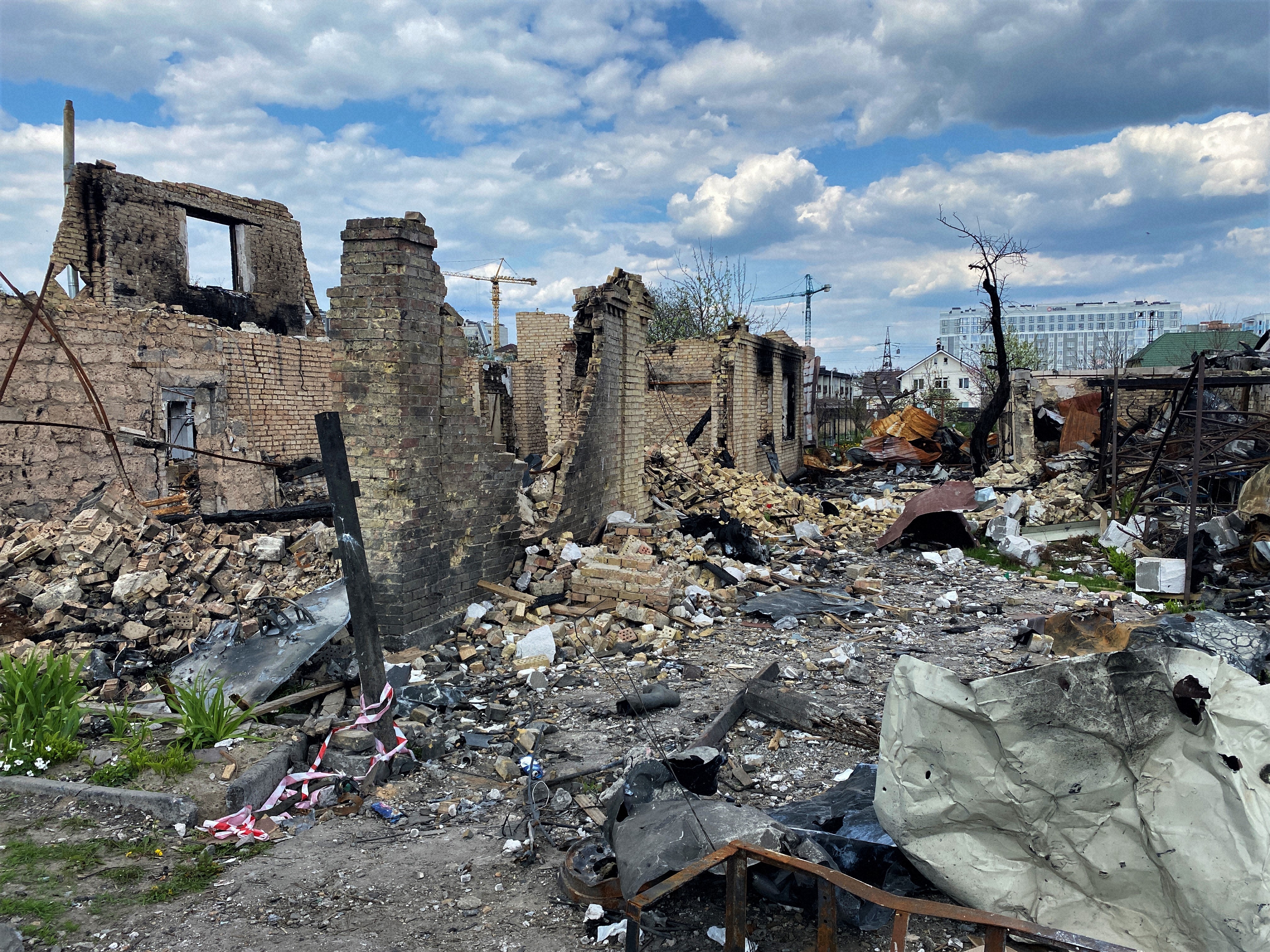
A residential building believed to have been destroyed by Russian military attacks is seen in Bucha, near Kyiv.
While studying abroad with concerns for their homeland and family, they have learned about NGO and NPO management, engagement with governments and corporations, human security, and the Sustainable Development Goals (SDGs). This education on new societal challenges of the 21st century and approaches to solving them has significantly broadened their perspective.
Yana says she learned about the importance of the SDGs and NGO activities. She said the Project Cycle Management class was particularly helpful given her role working in international technical assistance projects at the Ministry of Agrarian Policy and Food. "Usually I work from the top, like at the ministry, and I cannot sometimes understand what's going on at the bottom. But because of this class, now I can understand the whole process," she says. This includes how projects are born what goes on after that.
Professor Yukiko Kuramoto, who is supervising the Ukrainian students' research papers, stated, "I am grateful that they have come to Japan during such challenging times for their country, maintaining a positive demeanor and striving to deepen their understanding of Japan." The two are sometimes asked questions by Japanese students, which also contributes to the learning of their peers.
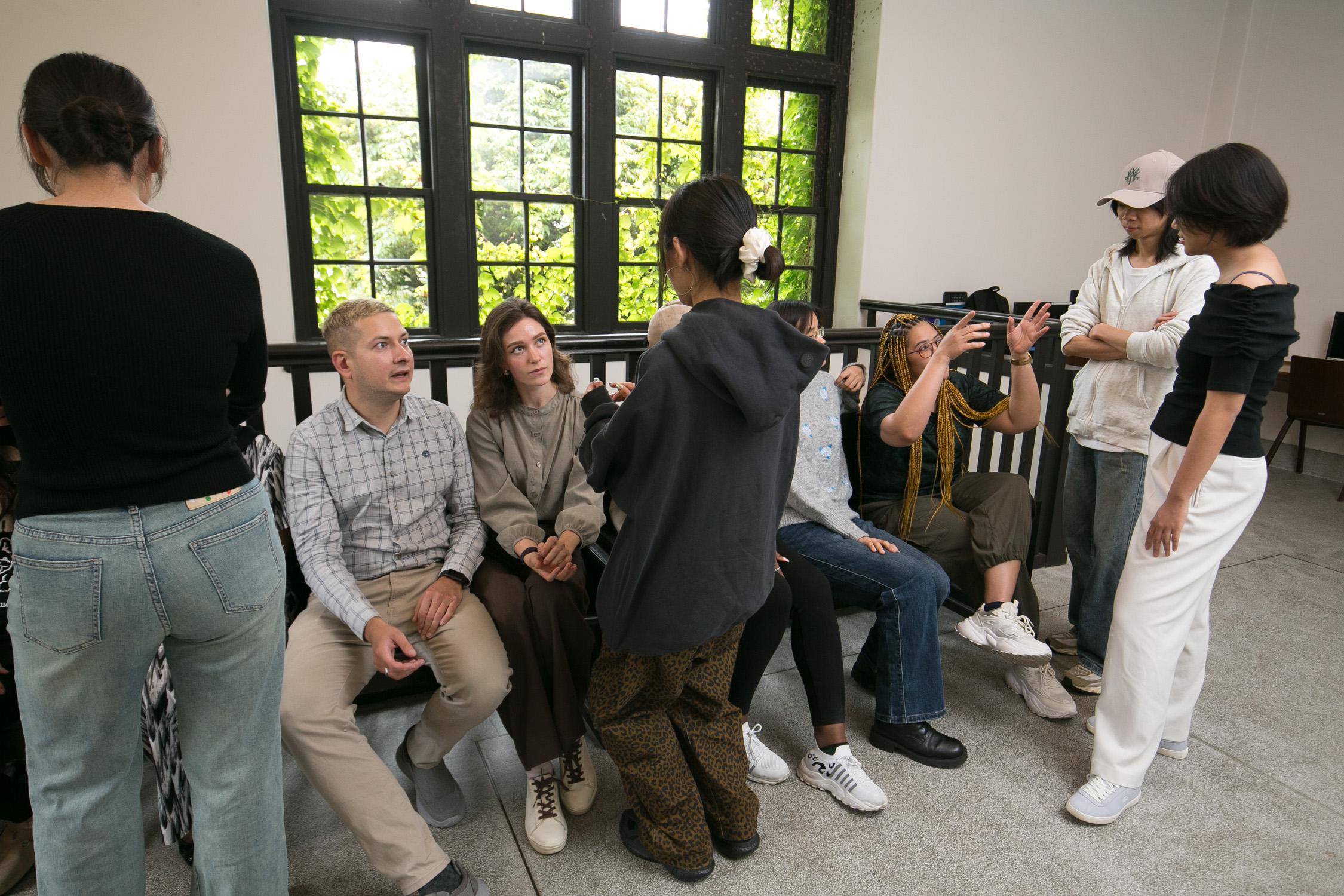
Vladyslav and Yana talk with classmates after class.
Additionally, through the JDS program, they had the opportunity to meet fellows dispatched from government agencies of various countries and build networks, which have become significant assets. Interactions with Japanese government officials also allowed them to learn about Japan's administrative operations and project management practices.
Ukraine is also a major exporter of agricultural products, with agriculture accounting for about 20% of its GDP. However, the industry faces severe challenges, including mines being buried in farmland and agricultural facilities being destroyed.
Vladyslav points out that some countries rely on importing affordable and high-quality Ukrainian agricultural products, and that the recovery of agriculture is also an issue relating to global food security.
Since Russia's invasion in February 2022, JICA has been providing Ukraine with financial support, grant aid and technical cooperation, and has conducted various surveys. In agricultural projects, JICA is conducting on-site investigations into damage to irrigation facilities and soil contamination by heavy metals, and is launching support initiatives to enhance agricultural productivity. Yana, who is part of the Ministry of Agrarian Policy and Food, is also involved in these JICA projects.
During their stay in Japan, the two also visited agricultural sites and companies. Two of the key objectives of their study abroad were to assess which Japanese agricultural machinery and technologies could be beneficial and to build connections with both public and private sector stakeholders.
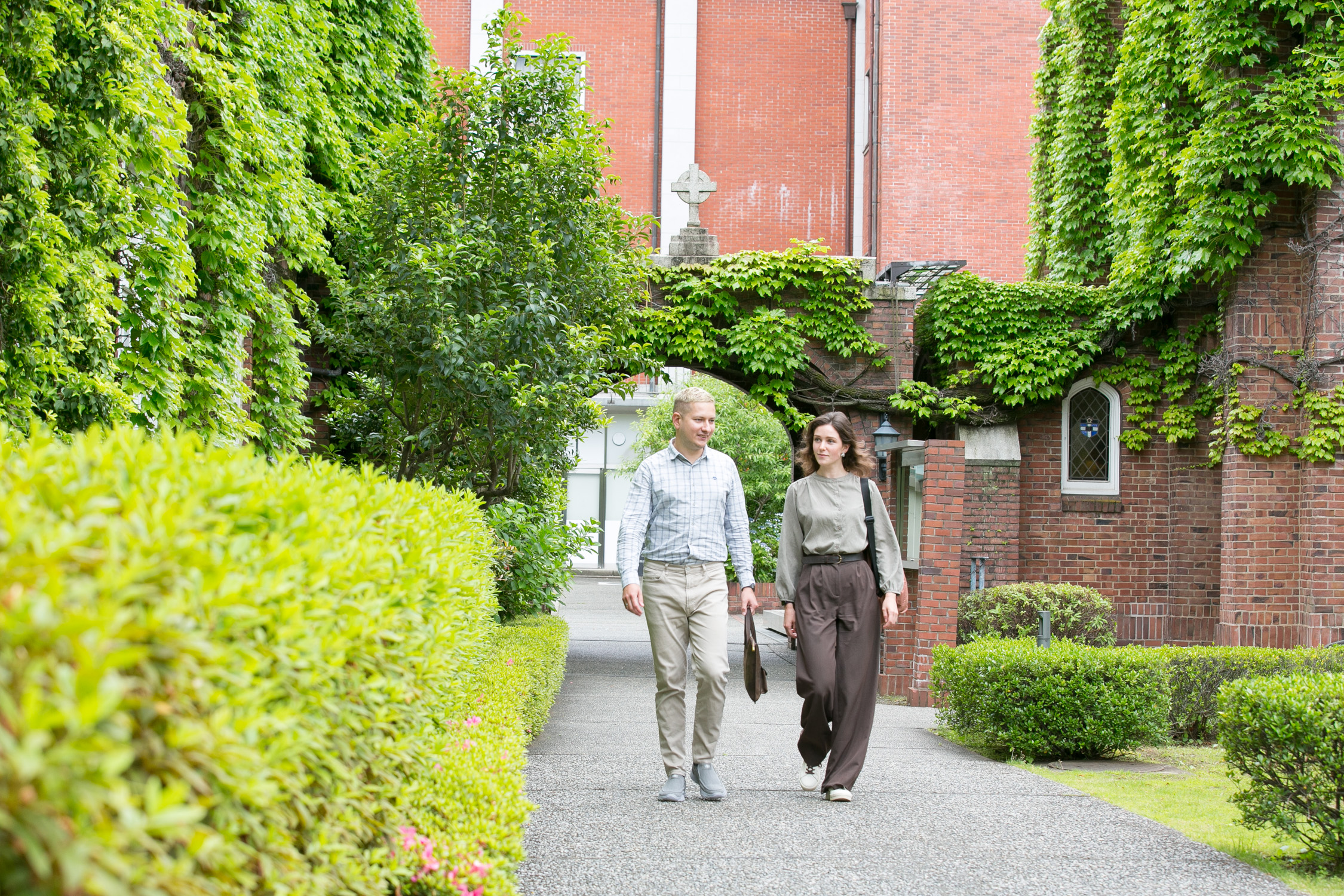
Vladyslav and Yana walk through the Rikkyo University campus.
The program lasts for two years, but Vladyslav and Yana plan to return to Ukraine in the summer of 2025 after completing their first year, finishing their second year and thesis through online courses. They say the first thing they want to do upon returning is to share the knowledge they have gained with their colleagues at work.
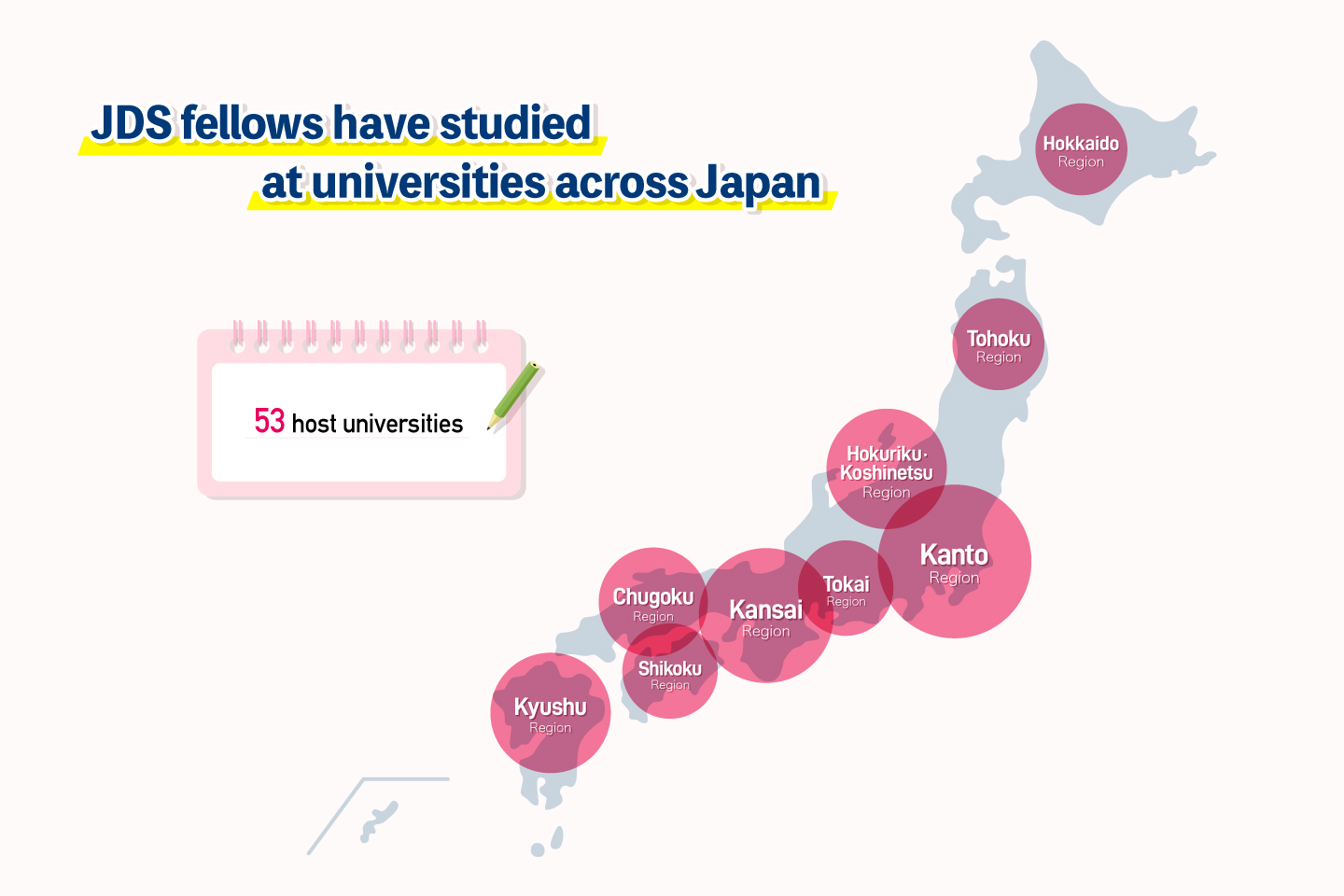
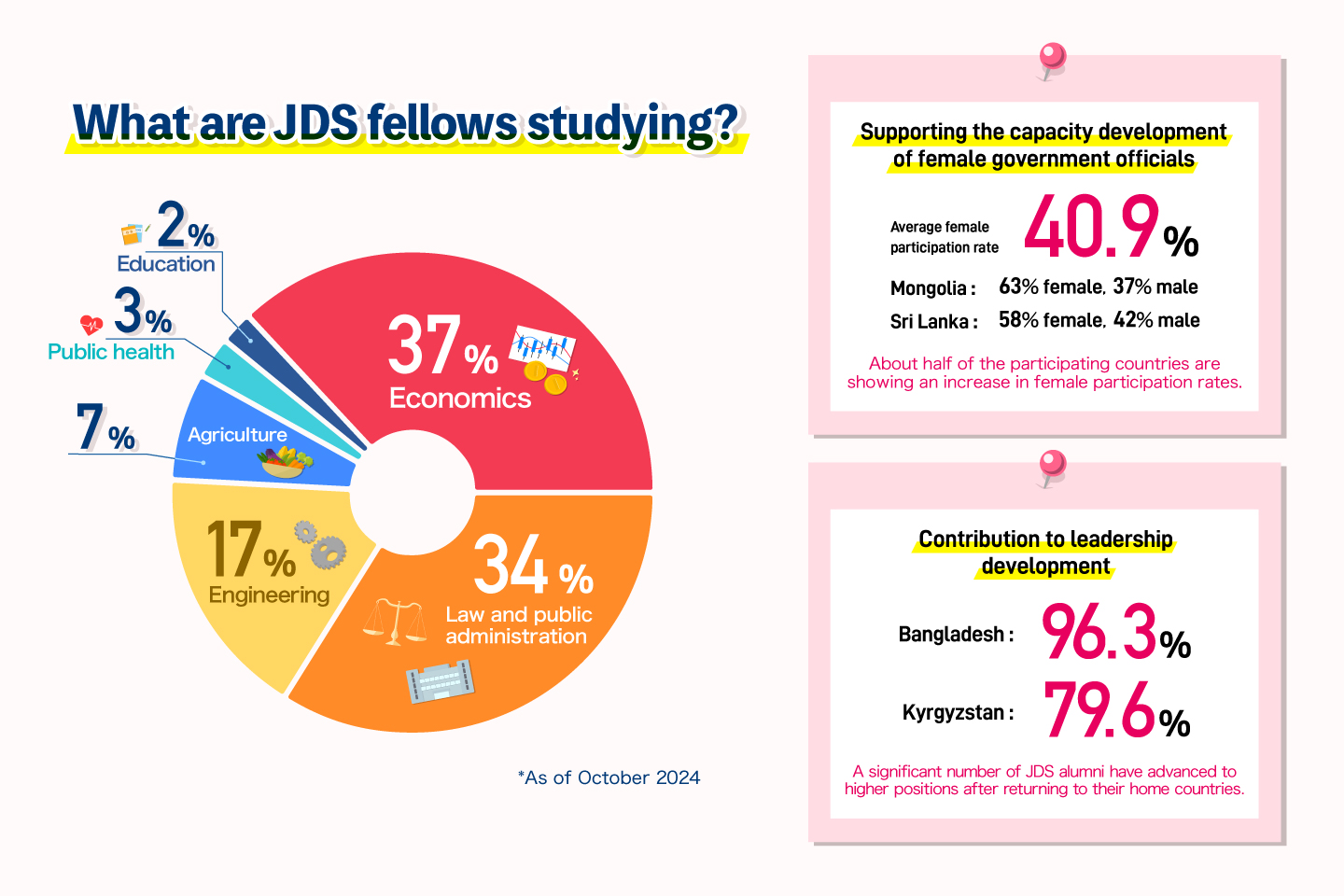
During their time in Japan, as they traveled across the country, Vladyslav and Yana were continually moved by the warm words of "We want to help" whenever they mentioned they were from Ukraine. They also have unforgettable memories of visiting Hiroshima during a university field trip.
"Hiroshima is a symbol of warning and hope," says Vladyslav. "The city, reborn from ruins, demonstrates that recovery and peaceful development are possible even after the most horrific disasters. The only question is whether world leaders are prepared to learn from past lessons to prevent new tragedies."
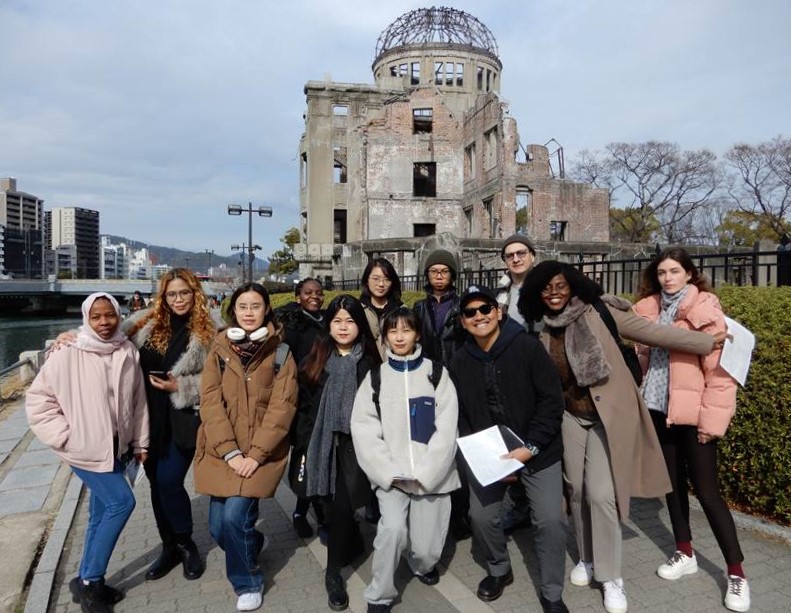
Yana, front row, far right, and Vladyslav, back row, far right, participate in a field trip to Hiroshima with fellow international students.
In Ukraine, many cities have been destroyed, and over 5.61 million people (as of May 2025) have sought refuge abroad. The path to recovery is long, and the perseverance of international support will be crucial.
Yana says, "We understand that every war finishes in negotiations. ... I hope when this active period (of war) ends, our cooperation, especially with Japan ... will be expanded even more deeply. We will have many different common projects which will help us to restore and rebuild."
Vladyslav, meanwhile, emphasized, "In reality, our world is so small and it's a house for everyone. And I think that this is the best thing we can provide."
The students aim to bring transformation to Ukraine, without letting the war end as merely a painful and sorrowful chapter. Having gained much knowledge in Japan, the two are stepping forward toward that goal.
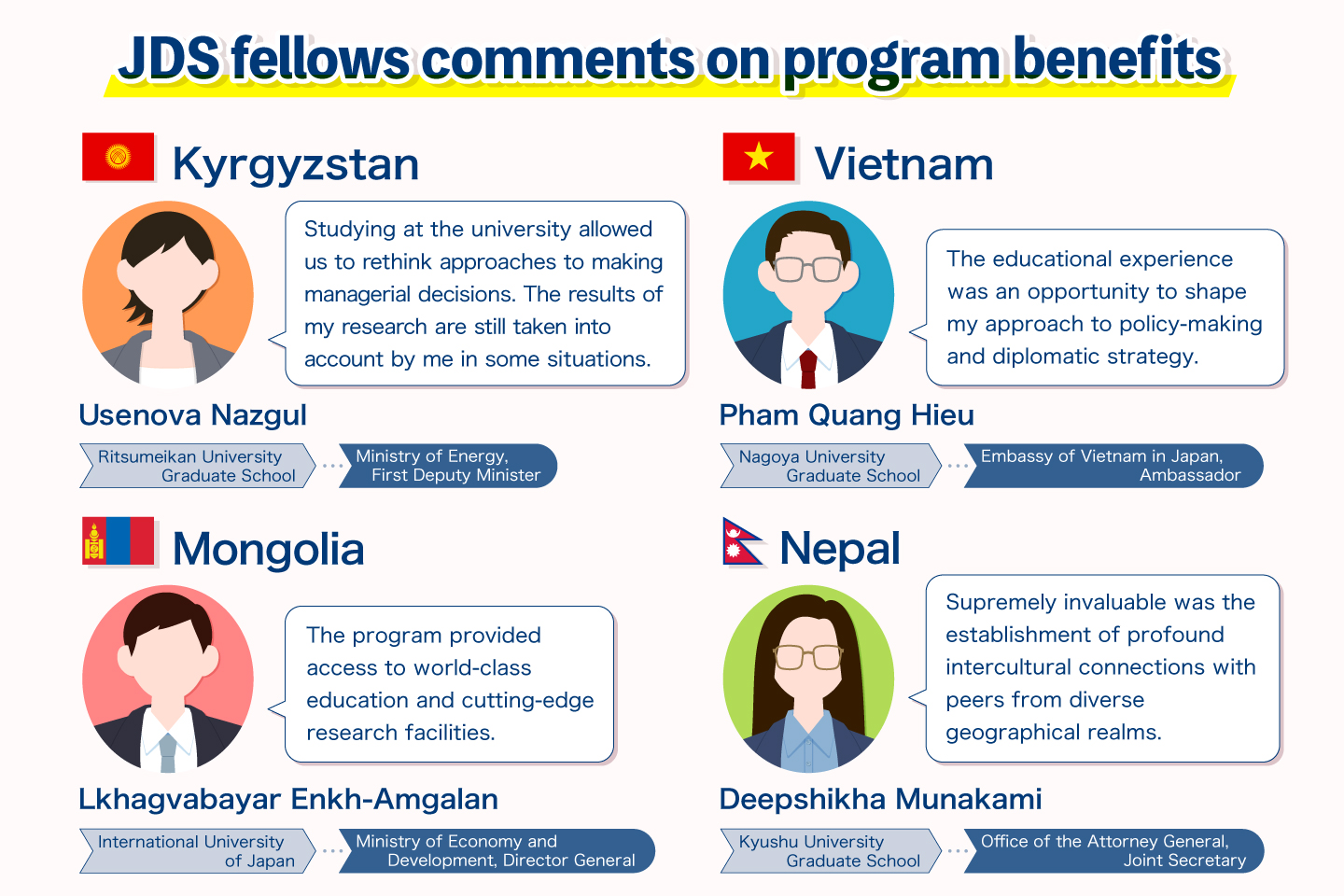
scroll